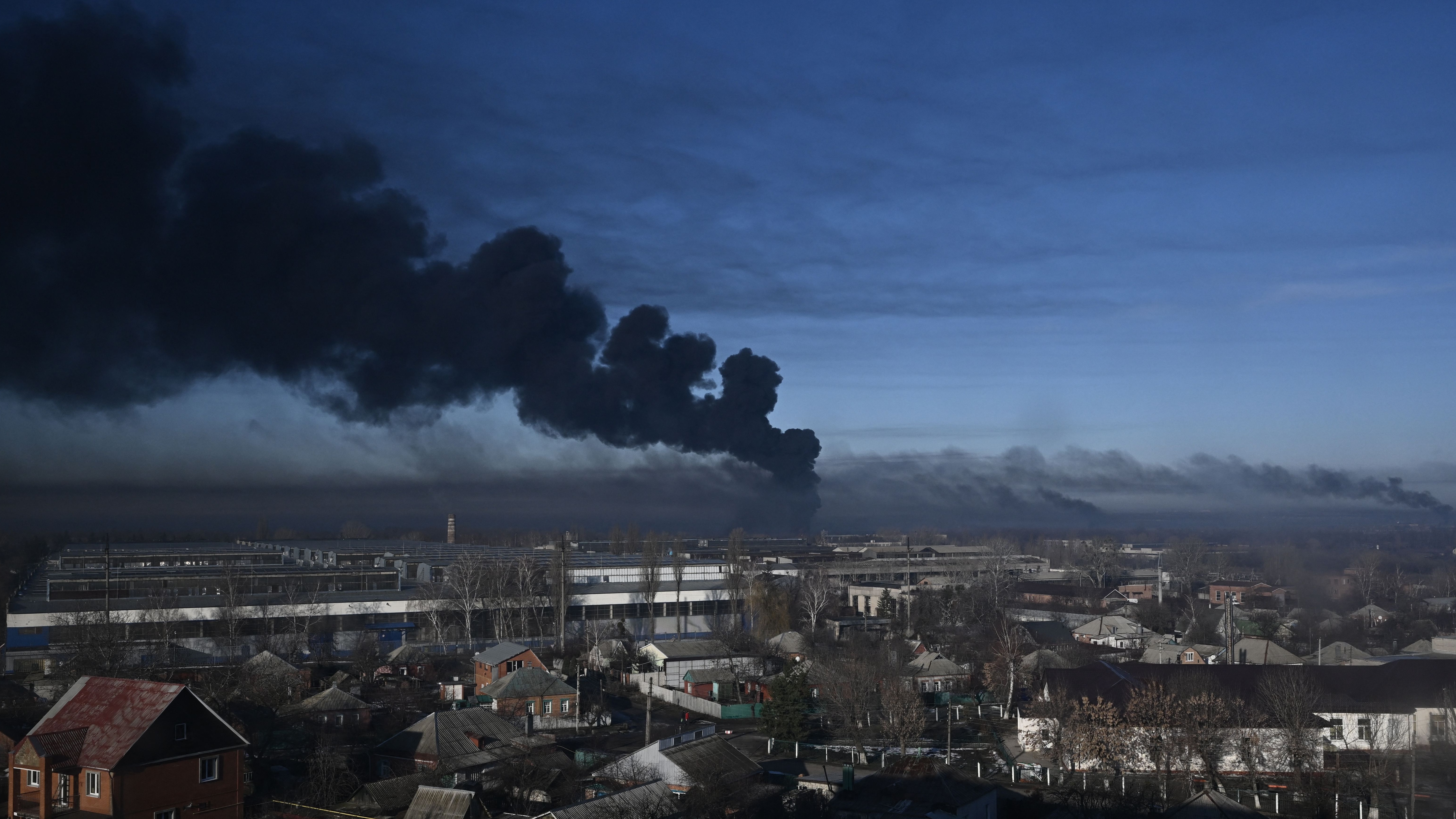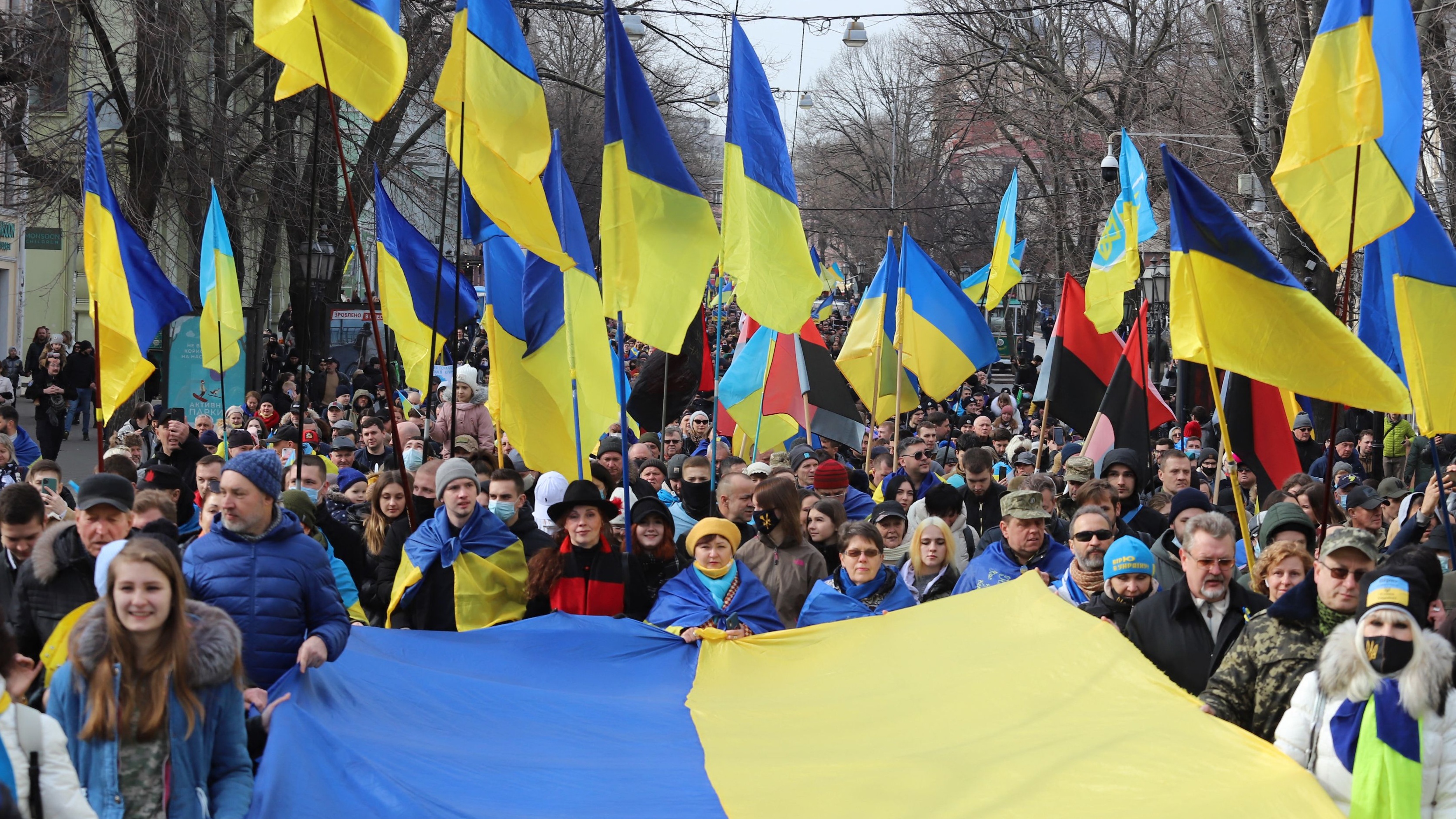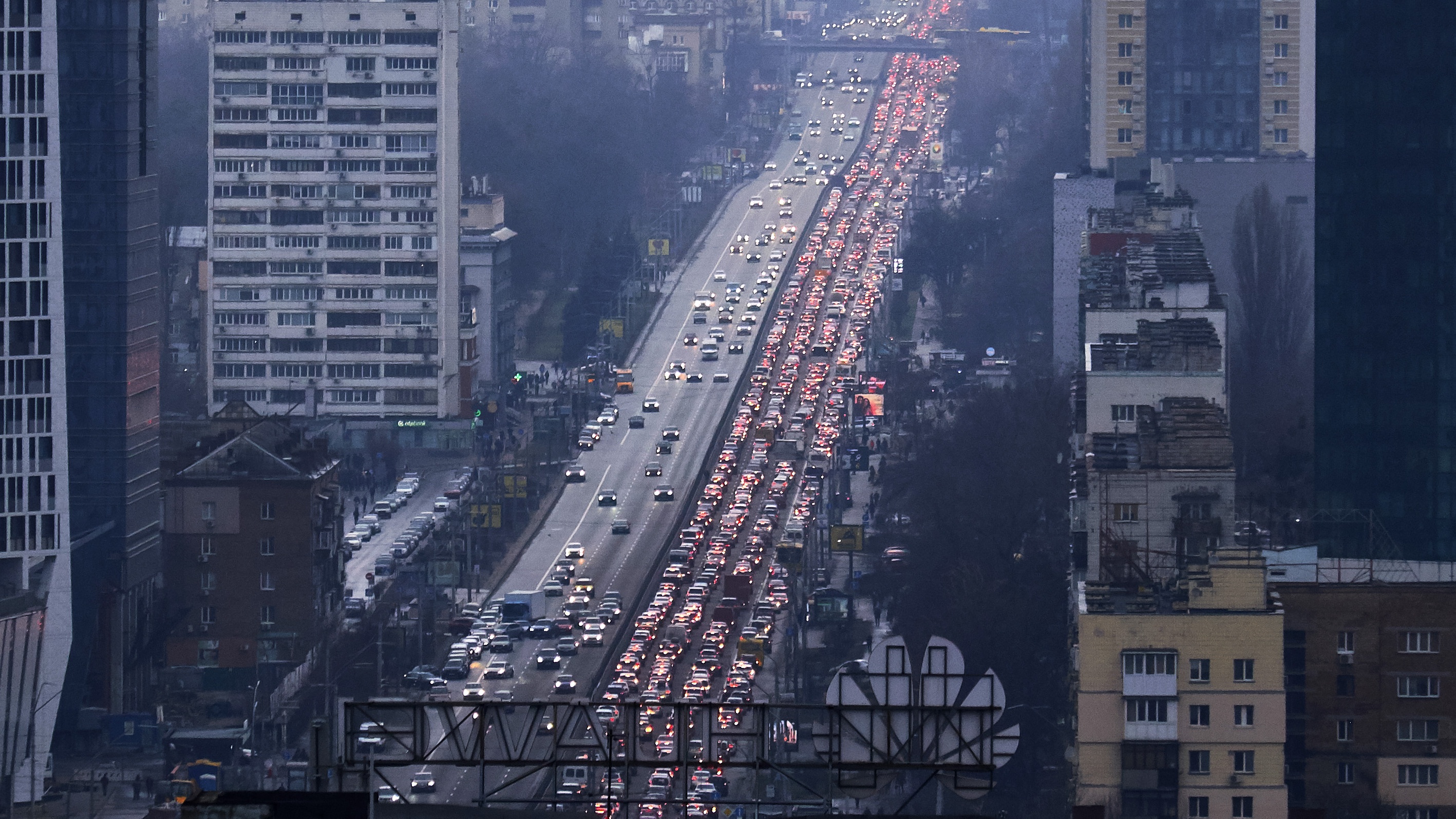‘Welcome to hell’: will Russia topple Ukraine in full-scale war?
Kyiv instructs military to inflict ‘maximum losses’ on Moscow’s invading army

A free daily email with the biggest news stories of the day – and the best features from TheWeek.com
You are now subscribed
Your newsletter sign-up was successful
Vladimir Putin has triggered what could become Europe’s largest conflict since the 1940s by giving the order for Russian troops to begin a full-scale invasion of Ukraine.
“The scope of the Russian attack appears to be massive,” said The Guardian. The Ukrainian Interior Ministry reported that the country is “under attack from cruise and ballistic missiles”, after explosions “lit up the night sky as shelling began” early today in capital Kyiv and other cities.
President Volodymyr Zelensky has ordered the head of the Ukrainian military to repel the invading Russian army while inflicting “maximum losses”, The Telegraph reported. The Ukrainian government has also declared martial law in the besieged eastern European country.
The Week
Escape your echo chamber. Get the facts behind the news, plus analysis from multiple perspectives.

Sign up for The Week's Free Newsletters
From our morning news briefing to a weekly Good News Newsletter, get the best of The Week delivered directly to your inbox.
From our morning news briefing to a weekly Good News Newsletter, get the best of The Week delivered directly to your inbox.
‘Welcome to hell’
An MP in Kyiv warned this morning that the Kremlin’s soldiers were walking into “hell”, after Vladimir Putin gave the dawn order for Russian troops to begin a “special military operation” focused on the “demilitarisation and denazification” of Ukraine.
“You won’t leave from here, we promise you this. Welcome to hell. We can say, you will die here,” Oleksiy Goncharenko said in what The Mirror described as a “firebrand” speech to the Verkhovna Rada parliament. “You will die like lousy dogs if you enter our country. And your generals throwing you to this meat grinder will run away first.”
Foreign Minister Dmytro Kuleba told reporters that Russia had embarked on “a full-scale invasion of Ukraine”.
“Peaceful Ukrainian cities are under strikes. This is a war of aggression,” he added. “Ukraine will defend itself and will win. The world can and must stop Putin. The time to act is now.”
A free daily email with the biggest news stories of the day – and the best features from TheWeek.com
In a televised address to the nation, President Zelensky said: “If someone attempts to take away our land, our freedom, our lives, the lives of our children, we will defend ourselves. By attacking, you will see our faces, not our backs, but our faces.”

Putin announced the invasion of the neighbouring nation in a pre-recorded message in which he claimed that “a hostile anti-Russia is being created on our historic lands”. In a warning to countries backing the government in Kyiv, he said: “To anyone who would consider interfering from the outside, if you do, you will face consequences greater than any you have faced in history.”
UN Secretary General António Guterres made a last-minute plea for Putin to “stop your troops from attacking Ukraine. Give peace a chance. Too many people have already died.”
Joe Biden said the Russian president had “chosen a premeditated war that will bring a catastrophic loss of life and human suffering”, adding: “Russia alone is responsible for the death and destruction this attack will bring, and the United States and its allies and partners will respond in a united and decisive way. The world will hold Russia accountable.”
Boris Johnson tweeted that he had been in contact with Zelensky, and that “the UK and our allies will respond decisively”.
“Putin has chosen a path of bloodshed and destruction by launching this unprovoked attack on Ukraine,” the prime minister said.
All out war
Ukrainian officials have reported that the attack began with “missile strikes on Ukrainian infrastructure and border guards”, said Al Jazeera. “Explosions have been heard in many cities”, and the country has also been hit by “non-stop cyberattacks”.
“Military command centres in Kyiv and the city of Kharkiv in the northeast have been struck by missiles,” the broadcaster continued, and Russian troops have also landed in the southern port cities of Odessa and Mariupol. Troops “attacked Ukraine from Belarus as well as Russia with Belarusian support”, and “an attack was also being launched from annexed Crimea”.
The BBC reported that “traffic jams formed” in Kyiv as residents attempted to flee, with long queues also forming for buses, cashpoints and petrol.
“Ukrainian state air traffic services has closed the country’s airspace as the country comes under attack,” the broadcaster added.

Michael Kofman, director of the Russia Studies Program at the US-based CNA defence research organisation, said the goal of Russia’s aerial bombardment was “to degrade, fragment and paralyse the Ukrainian armed forces along with its political leadership”. In an article for The Economist, Kofman wrote that the air campaign would probably be “brief” and “followed by a combined arms ground offensive”.
The Russian “ground force is an artillery army with tanks and mechanised infantry” that “emphasises decisive use of firepower”, he explained. It will also be heavily “backed by attack helicopters, tactical bombers and missile brigades”.
Thanks to investment and deliveries of “lethal aid” from Nato member states, “Ukraine’s armed forces have improved since the fighting of 2014-2015”. But “so have Russia’s”, so the outlook for Ukraine is “grim in a conventional fight”, Kofman added.
Ukraine has begun “mobilising military reservists”, The Times reported, and “36,000 veterans of the last conflict with Russia” have been deployed to the front line. Reservist Leonid Ostaltsev, a Ukrainian military veteran, told the paper that his nation’s people had been offered no choice but to fight after “Putin said that we don’t live in Ukraine as a sovereign country”.
“Two months or three months ago, we had people who still thought the Russians were our friends and now they understand that it’s not true,” he said.
Kofman predicted in The Economist that Ukraine’s military could “take to the cities” in a bid to stave off the bigger and better equipped enemy forces. But this “would prove a difficult decision as urban warfare is immensely destructive”.
The Kremlin undoubtedly “has the military advantage”, but its “pronouncements on Ukraine suggest that the Kremlin suffers from a high degree of war optimism – a common mistake made by aggressors throughout history”, he continued.
As Putin found after he deployed troops to Chechnya in 1999, “these conflicts tend to drag on well beyond the initial campaign, or escalate into regional wars”.